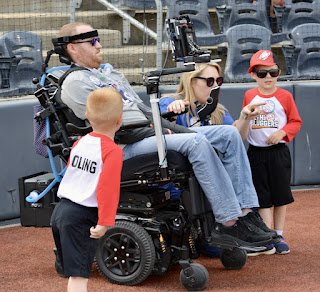ALS Frontotemporal Degeneration or Unappreciative
Amyotrophic lateral sclerosis (ALS), also known as Lou Gehrig's disease, is a progressive neurodegenerative disease that affects the nerve cells responsible for controlling voluntary muscle movement. It's a debilitating condition that can deprive a person of their physical abilities and, in some cases, their mental capacities.
For many people with ALS, the disease's progression can feel like a loss of control over their bodies and lives. It's not uncommon for individuals with ALS to experience changes in their personality or behavior, such as becoming more irritable, impulsive, or aggressive.
Frontotemporal degeneration or frontotemporal dementia (FTD) is a group of disorders that causes progressive damage to the temporal and frontal lobes of the brain associated with personality, behavior, and language. Loss of function in this part of the brain can lead to impulsive behavior and speech difficulties.
Usually, FTD does not affect the parts of the nervous system that control muscles. Although, 10-15% of people with FTD also experience motor neuron degeneration called FTD with motor neuron disease (FTD/MND) or FTD with ALS.
However, it can be challenging to determine whether these changes result from the disease, pre-existing personality traits, or a combination that has become more pronounced due to the disease's effects.
In my case, I am struggling to understand whether my personality changes resulting from the disease or pre-existing traits that have become more pronounced. Before the onset of ALS, I was a "happy, smiling, and life of the party" dude. Still, as the disease progressed, I suddenly became a "presumptuous, demeaning, and ungrateful dude."
The disease may have caused damage to my Frontotemporal Degeneration which is responsible for regulating emotions and behavior. Many living with ALS have had those tendencies, despite being masked by my pre-existing personality traits. ALS and its physical and emotional challenges may have caused me to suffer a mental breakdown. The exacerbated pre-existing conditions lead to these behaviors' expression.
Living with ALS can be incredibly challenging, both physically and emotionally. Being forced to rely on others for basic needs, such as dressing or bathing, can be daunting and humbling.
I suppose it is normal for me to struggle to process these changes in my personality and behavior.
However, it's important to remember I am not my disease. ALS may have caused changes in my behavior, but it doesn't define who I am as a person. I am seeking the help of a mental health professional and support group for individuals with ALS to process these emotions and understand myself better.
It can be challenging to determine whether changes in personality and behavior result from the disease or pre-existing traits that have become more pronounced. While ALS can cause damage to the FTD, another possibility is pre-existing personality traits could elevate due to the ALS effects.
Regardless, it's essential to remember that you are not your disease and to seek support to help process these emotions and come to terms with who you are as a person living with ALS. #FTD #EndALS
.jpg)



Comments
Post a Comment